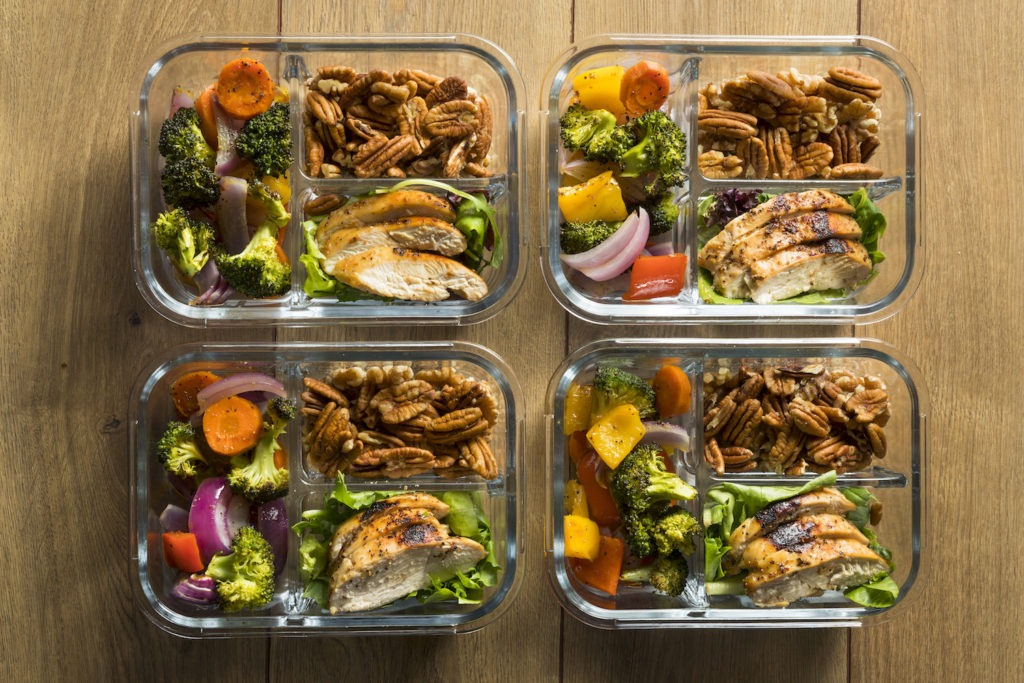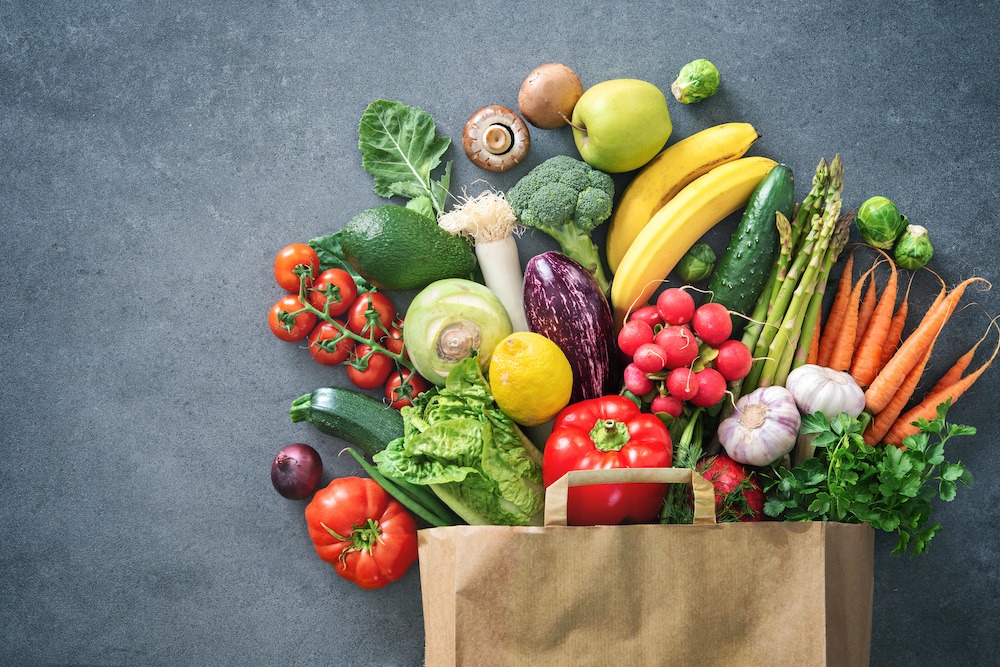Five Ways to Stay On Track With A Healthy Diet
Words: Vanessa Salvia
Words: Vanessa Salvia
Photos: AlexRaths, bhofack2, ndoeljindoel
Imagine being at the gas station and putting regular gasoline into your diesel car engine. Gasoline isn't the right type of fuel for a diesel engine, so the diesel engine can't use the fuel, which means greatly reduced engine performance. You'll get incomplete combustion and a lot of black smoke. The gasoline will "gum up" the engine and cause problems at every point: no ignition, no lubrication, clogged up sensors, etc. Continuing to use the wrong fuel in your diesel engine will cause permanent engine damage before long.
Now, imagine this analogy as your body instead, recognizing that food is your "fuel." Eating the wrong fuel once or twice will probably leave you sluggish and not feeling great, but eating the wrong fuel over and over can lead to "engine damage." Think of food as our engine's fuel and consume good foods that will reduce your chances of obesity, heart disease, high cholesterol, and other problems.
Masons have extra challenges when it comes to food and hydration. It is often a difficult and dangerous job. Working long hours, in any weather from heat to snow, can make it difficult for workers to keep up with healthy eating habits. Staying healthy during your workweek might mean taking a little extra time to take foods with you that will provide energy and stave off an energy slump later in the day, without having to rely on the artificial boost of caffeine. Here are five healthy habits masonry workers can follow on and off-site to improve your job performance and your health.
1. Stay Hydrated
While working outside in the heat all day, it can be difficult to consume as much water as you need to. According to The Daily MBA, a 1% drop in hydration can lead to a 12% drop in productivity, and a 3 to 4% decrease in hydration can lead to a drop in productivity of between 25 and 50%. Workers with physical jobs whose sweat needs even more fluid than you might think. OSHA encourages workers to drink water every 15 to 20 minutes. They also say you should drink small amounts even before you become thirsty.
2. Eat a Healthy Breakfast
When you're facing a long day of physical labor, breakfast is the meal that will kickstart you and keep you going until lunch. Make healthy protein a part of your breakfast, because dieticians have long known that protein keeps you feeling full longer. According to a 2018 study published in the journal Advanced Nutrition, the ideal amount of protein at breakfast to provide energy and a longer feeling of fullness is about 30 grams.
Three and a half ounces of turkey breast provides almost 30 grams of protein, so consider starting your day with a sandwich instead of a traditional breakfast. You don't have to eat meat to get that much protein though. Try scrambled eggs with cheese and spinach sauteed with it. 12 ounces of Greek yogurt also provides 30+ grams of protein. A high-protein cereal, pancakes made with a scoop of protein powder, or even cottage cheese with fruit provides enough protein to hit that sweet spot.
3. Pack Healthy Foods
 Homemade Keto Chicken Meal Prep with Veggies in a Container
Homemade Keto Chicken Meal Prep with Veggies in a Container
A person with a manual labor job can burn up to 300 calories per hour while an office worker might burn only 102 calories per hour. While you're burning three times the calories of a desk jockey, that doesn't mean you should eat Big Macs every day. If you're working on a remote site, access to healthy food might be hard to come by. Rather than loading up on junk food from the nearest gas station or fast food joint, load your lunch box with foods that provide energy and nutrients. Choose a variety of colorful foods, such as red berries, green lettuces, and yellow peppers. Make your sandwiches on whole-grained bread. Prepare sandwiches or other snacks with lean protein such as chicken, turkey, eggs, nuts, and fish.
4. Eat For Energy
All foods give you energy, but that's not created equal. Sugary sodas and sweets like donuts put the "fuel" (sugar) into your system too quickly. You'll ride a wave and then crash not long afterward, which can lead you to crave even more sugary quick fixes. Combinations of complex carbohydrates, healthy fats, and protein provide sustained energy that satisfies hunger and doesn't lead to a crash.
Whenever you have a break, eat foods that provide sustained energy:
- One hardboiled egg provides about 6 grams of protein
- Beans contain fiber and protein. Mix beans with chopped veggies and/or grains for a cold salad
- Snack on a handful of walnuts or almonds
- Berries or other fresh fruit provides a feeling of eating something sweet but without the resulting sugar crash of a donut
- Mash half of an avocado on a piece of whole-grain bread
- Spinach salad with sliced grilled chicken breast and garbanzo beans provides lots of protein and flavor. If you don't want to eat a salad, put all of the fixings in a large tortilla and eat it as a wrap instead.
- When it's cold, try taking a thermos full of turkey chili
- Whole grain salads keep you full longer, but it can be inconvenient to eat a bowl of grains with a spoon when you're on a job site. Instead, try whole-grain breakfast bars.
- Avoid power bars or energy bars unless you are very careful about reading the ingredients. The Harvard Health Blog reports that the glycemic index (a measure of how much blood sugar rises) of typical energy bars was the same as a candy bar.

5. Avoid Overdoing Alcohol and Caffeine
It can be tempting to go out after work and drink a few beers. Chances are, it makes you feel relaxed and you might feel like you sleep better. But that's not what actually happens. While you may fall asleep more easily if you've had some drinks, there's a strong possibility you'll wake up in the middle of the night. Alcohol also blocks REM sleep, which is considered the type of sleep your body needs to feel rested. Caffeine, on the other hand, also causes an energy crash and can lead to dehydration. Drinking too much caffeine during the day can also cause sleepless nights.